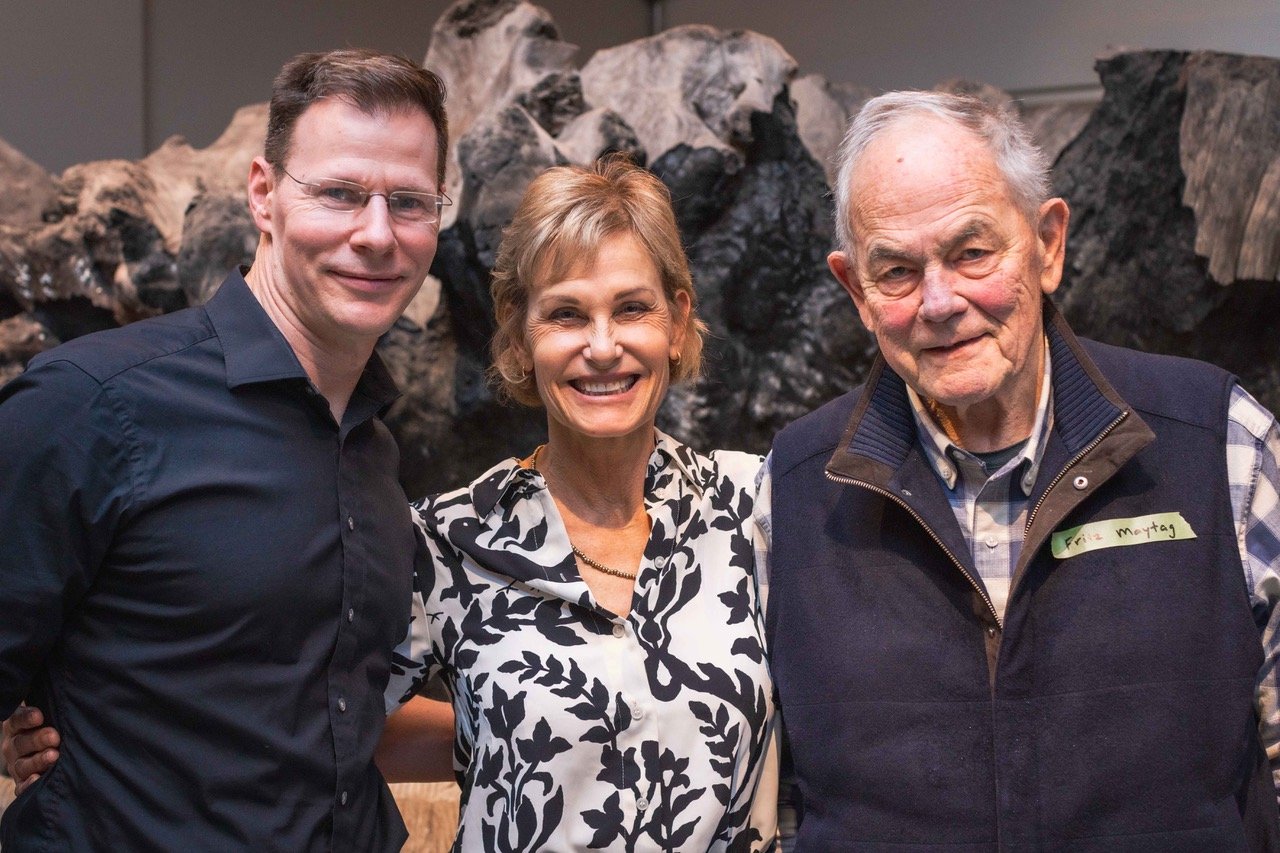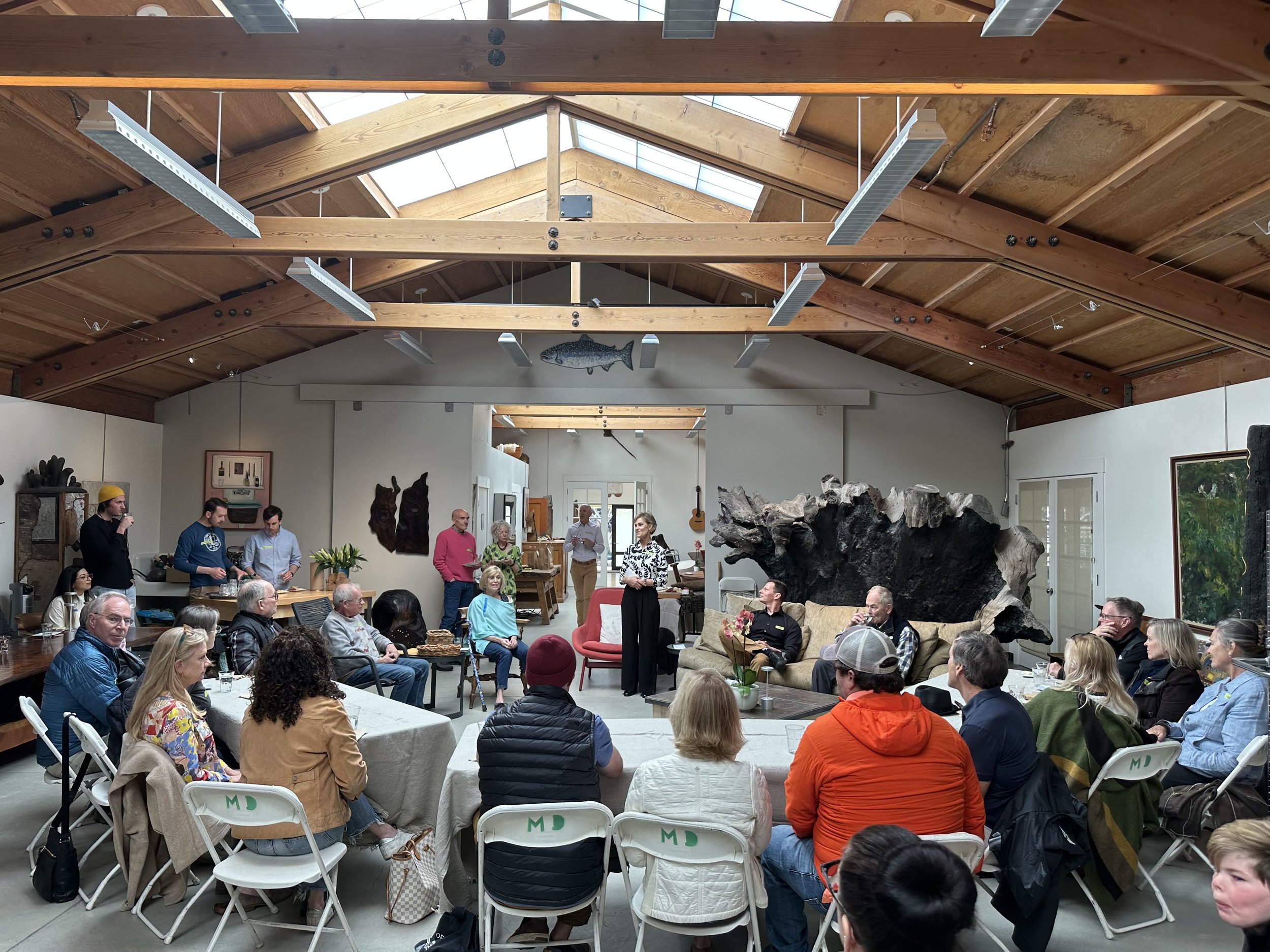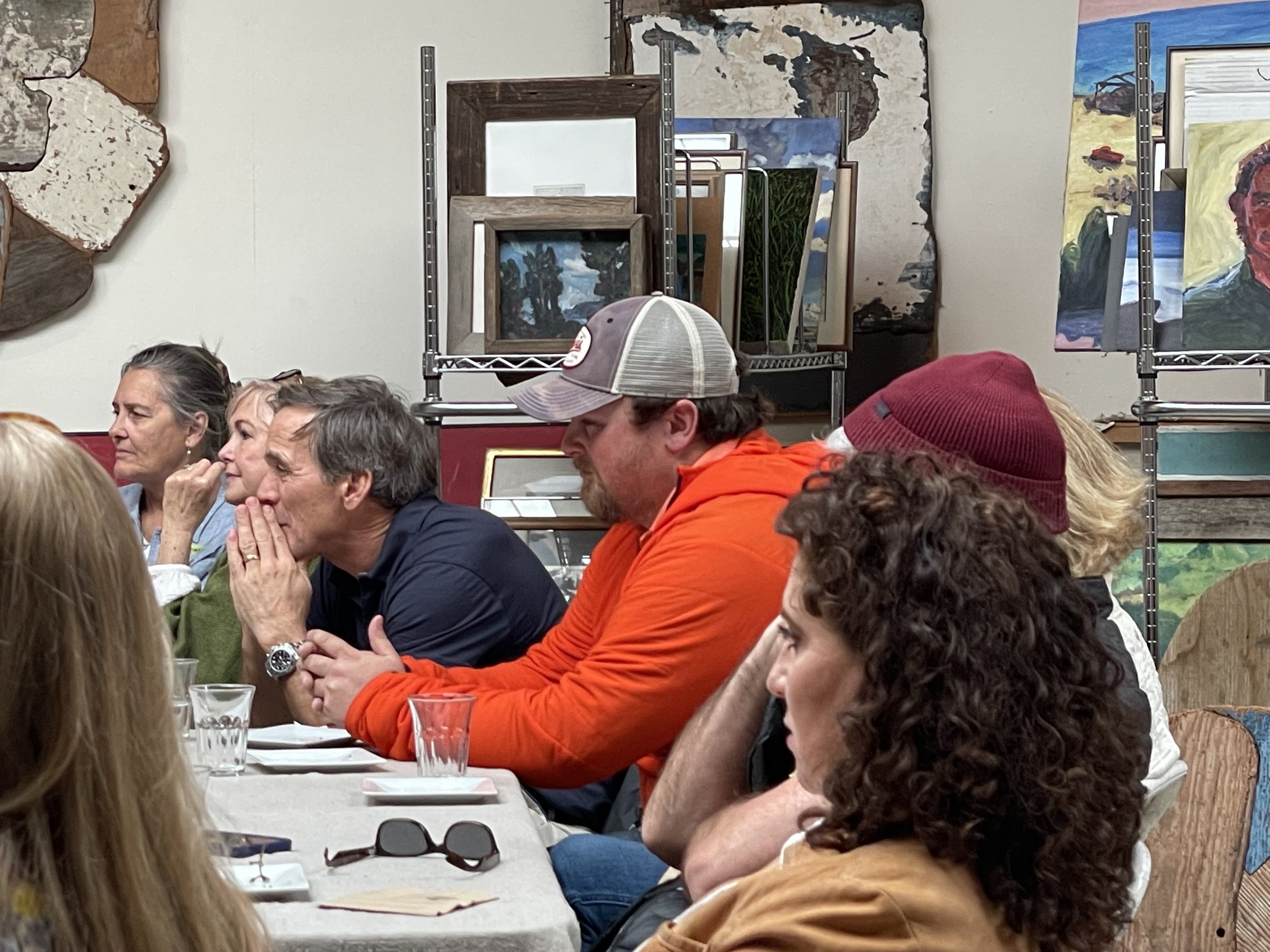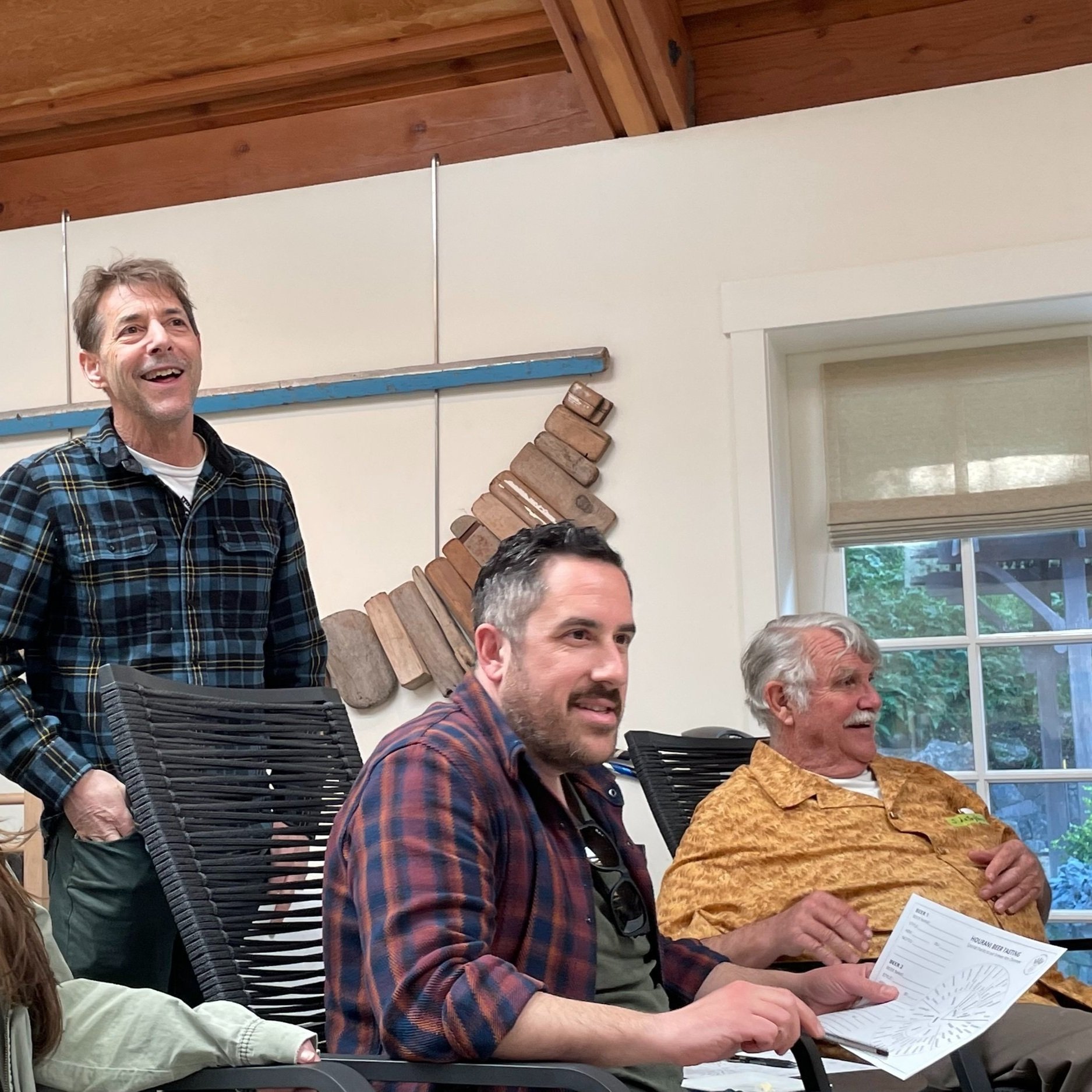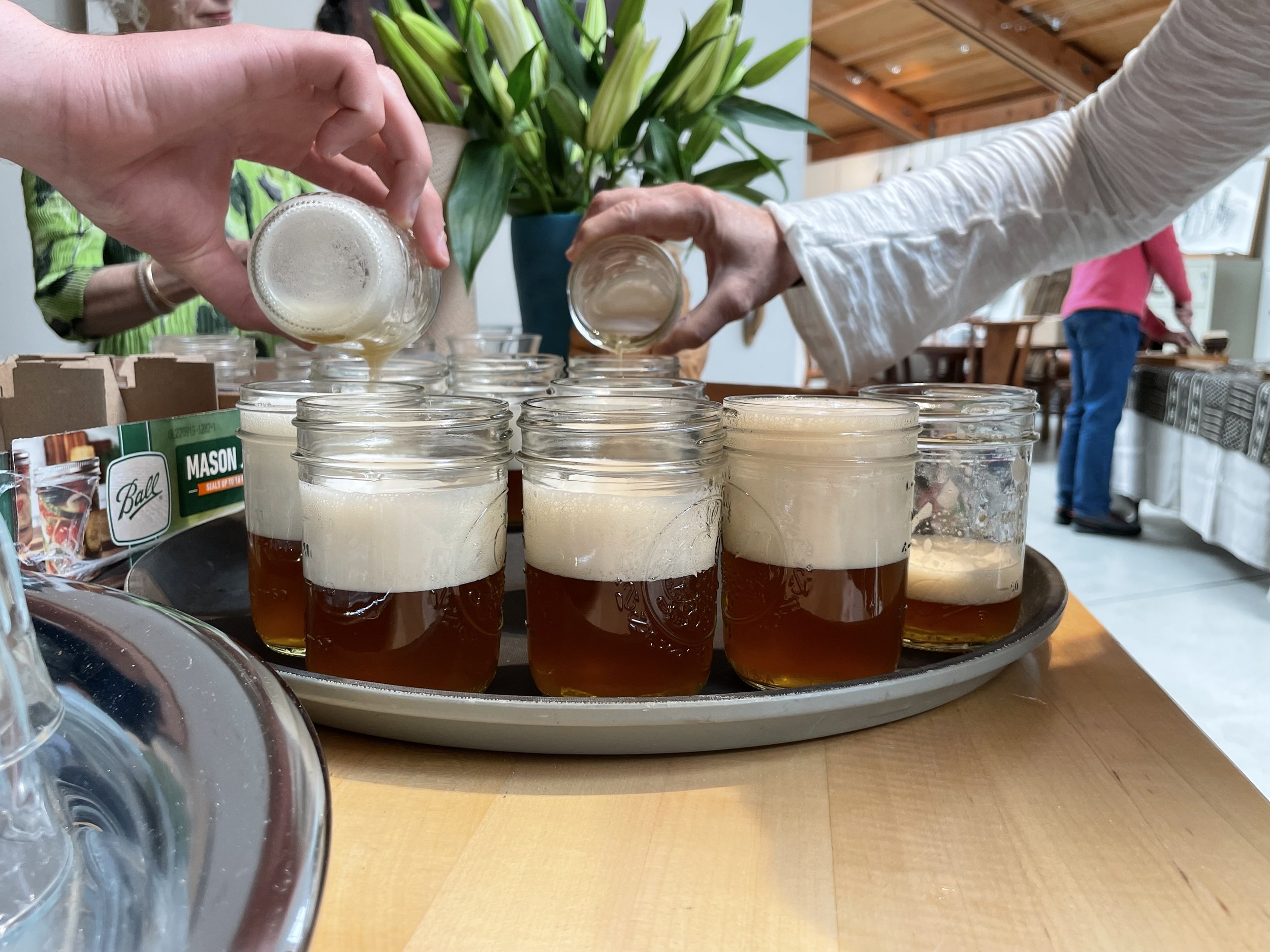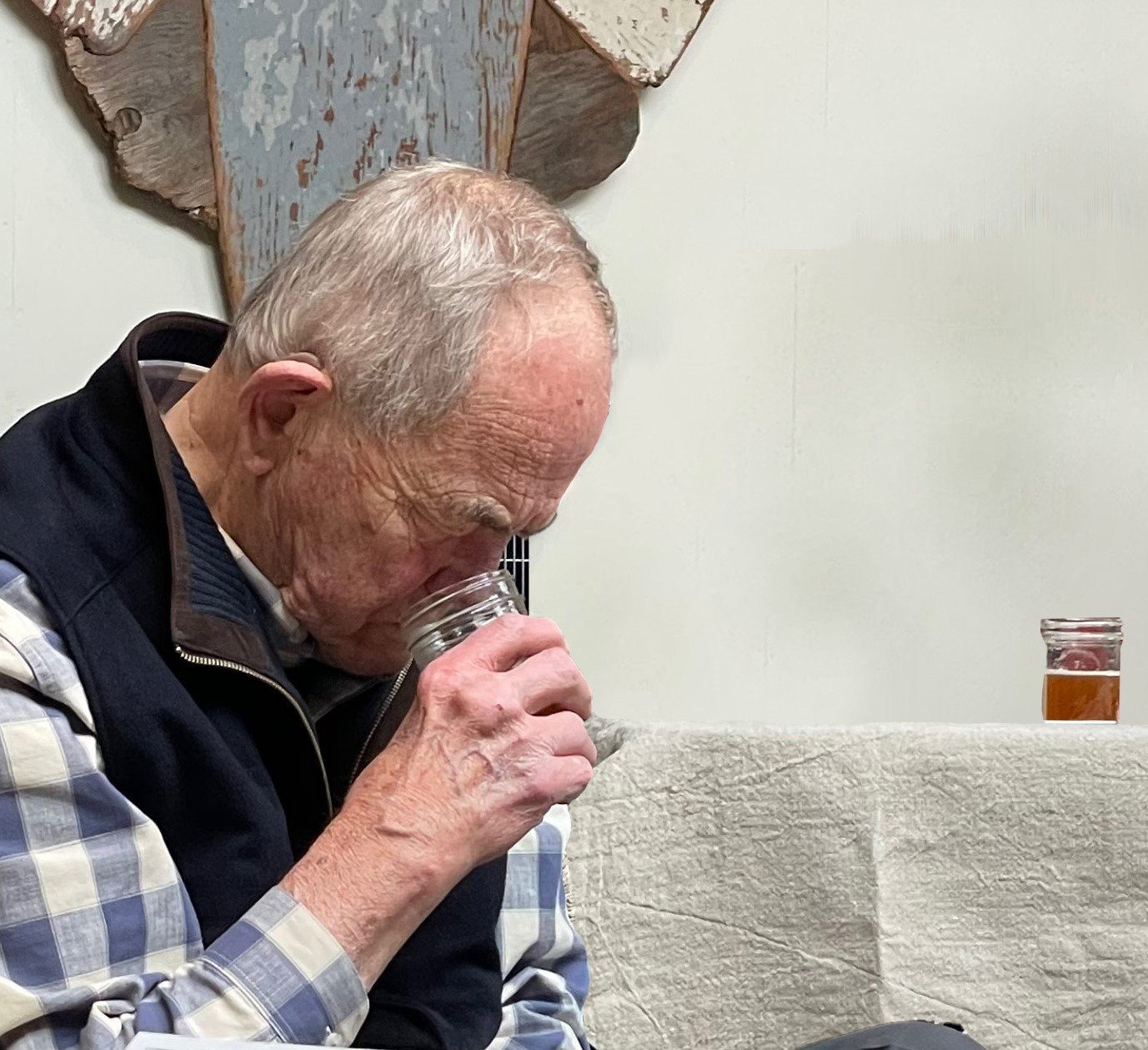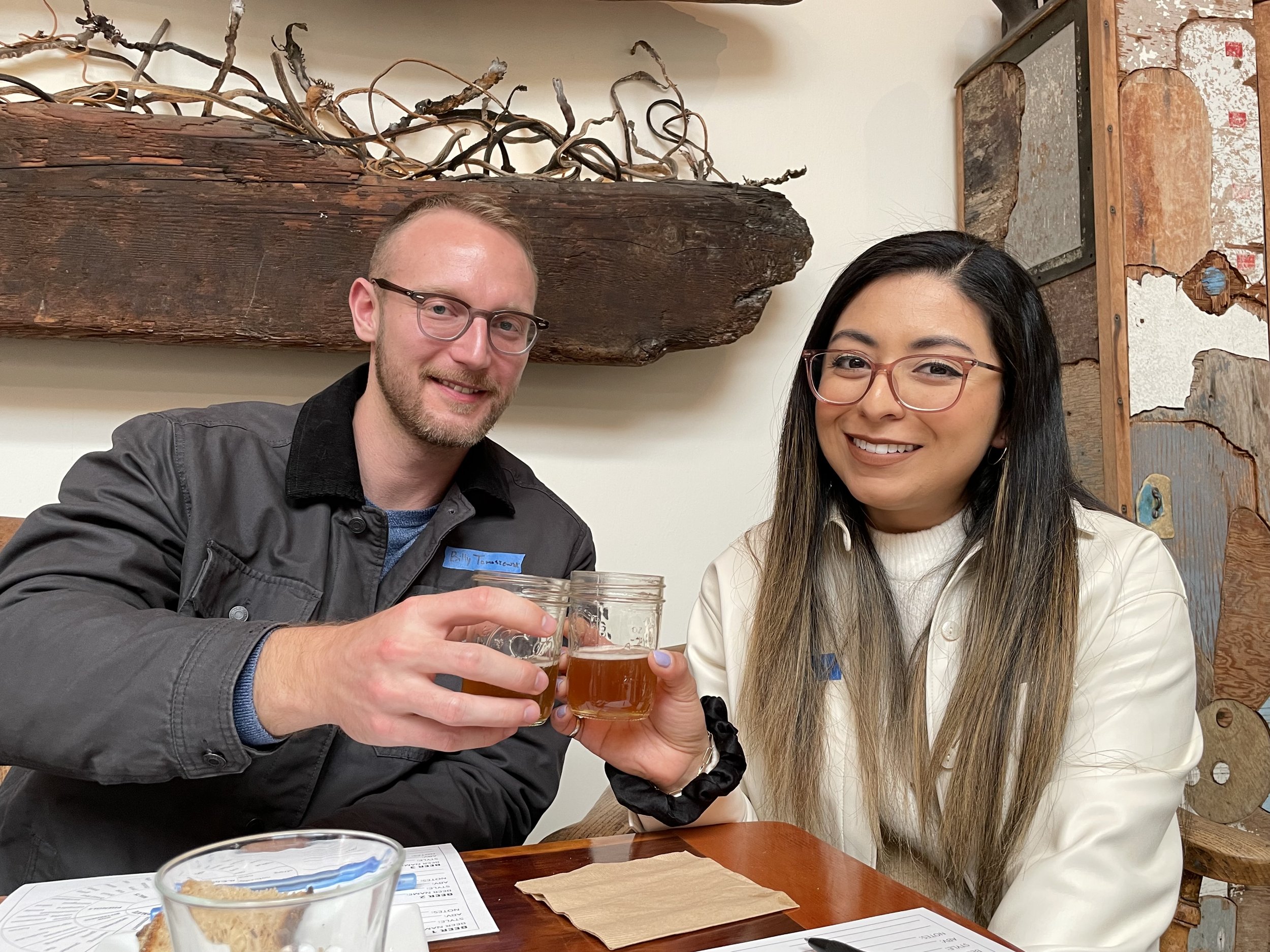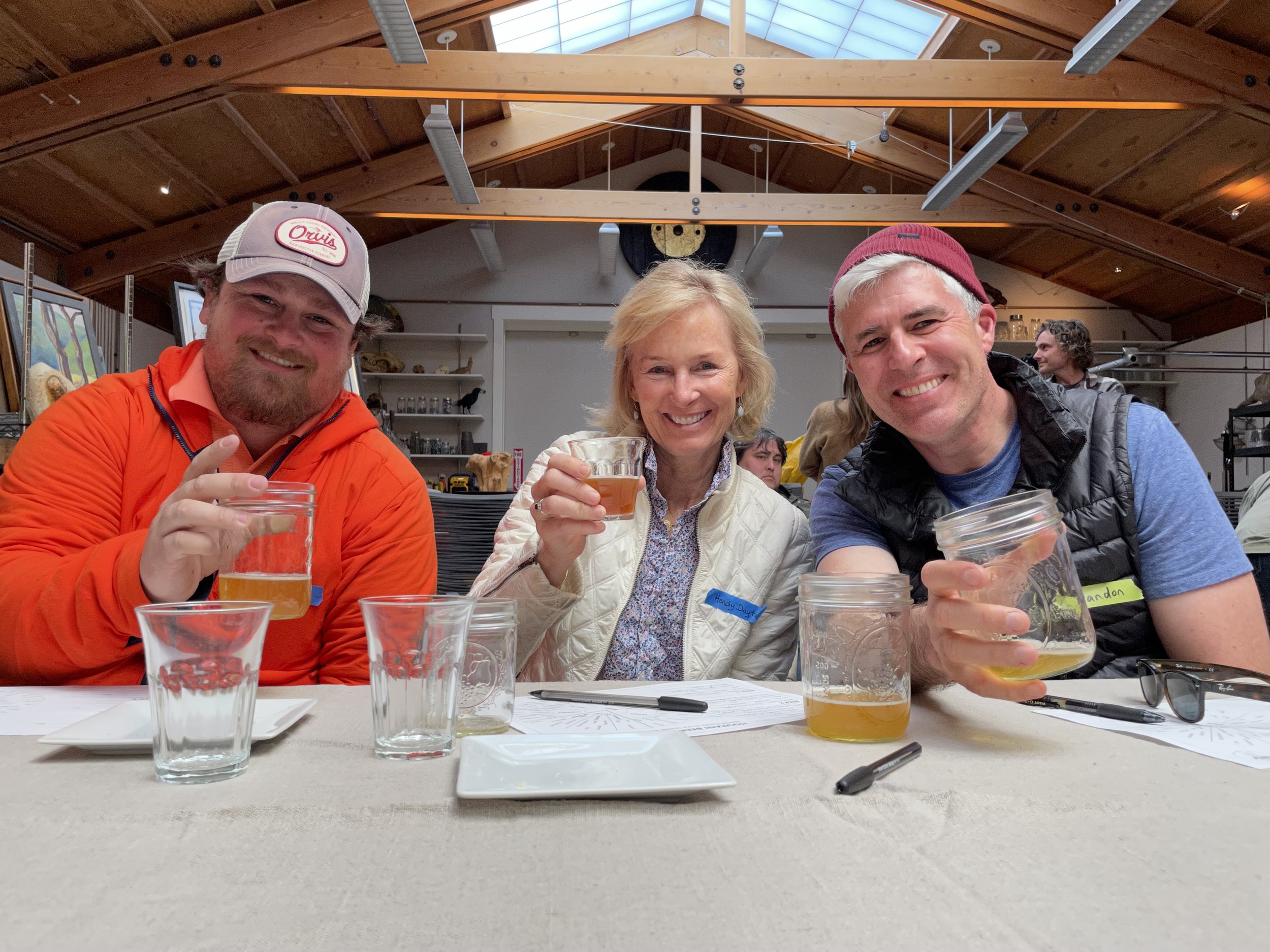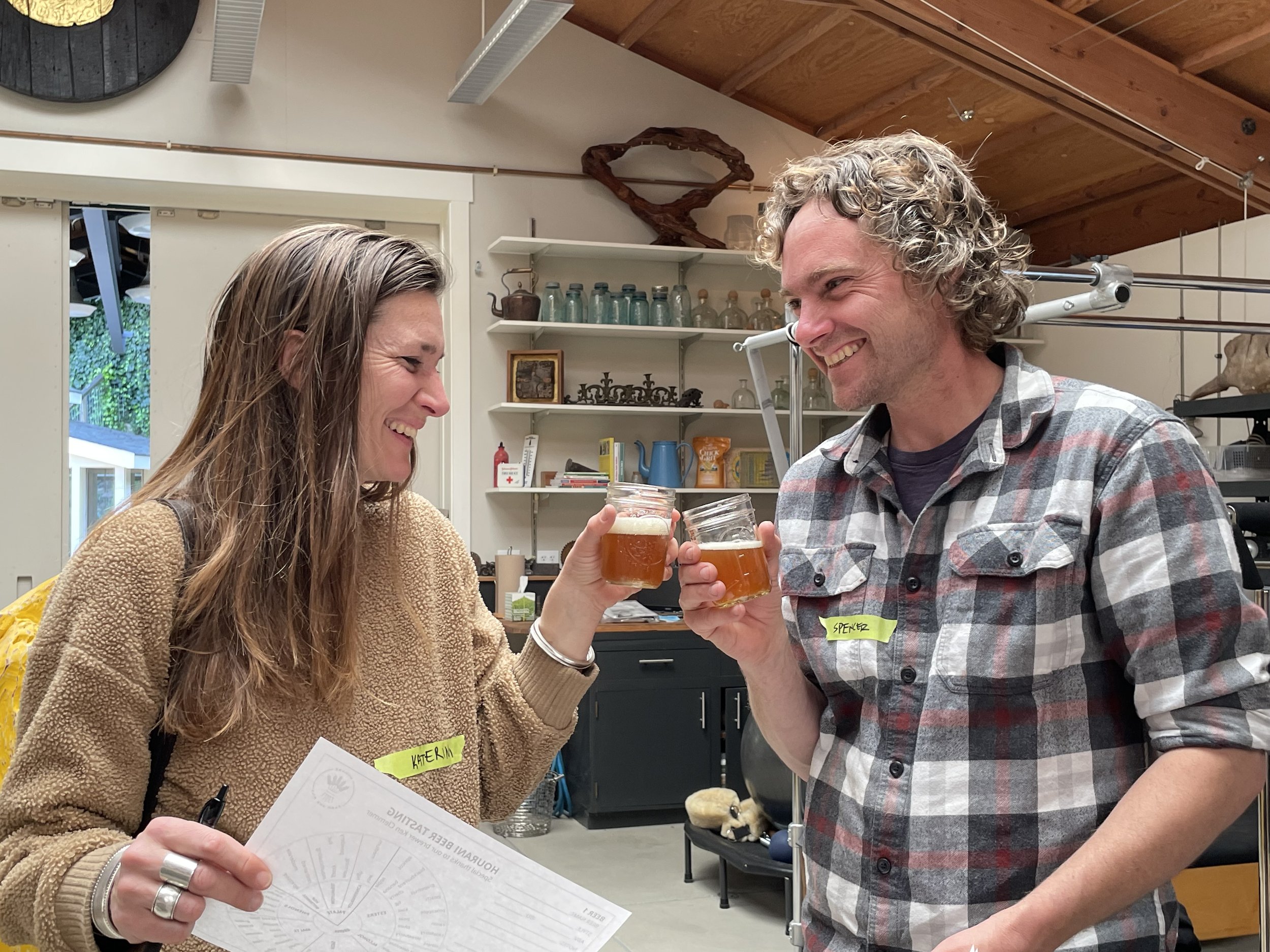HOURANI BEER TASTING
“From a commercial perspective, it’s a success!”
fritz maytag
In March 2023, we gathered to taste our first ever beer made from Hourani wheat whose provenance dates back 2,000 years. To the best of our knowledge this is the first time that beer had been made with Hourani in this country. Many thanks to Glenda and Henry Corning, Fritz Maytag and Ken Clemmer for making this possible.
Fritz Maytag is a beer making luminary. Inc Magazine wrote: “He invented what later became known as microbrewing. Without his Anchor Steam Beer and its brother brews, we beer lovers might have been consigned to choosing between Budweiser, Miller, and Coors.” It was Fritz who had the idea to make beer out of Hourani. We had approached him out of a curiosity to try our hand at distilling whisky, and he became interested in the Hourani story and suggested that we test our whisky idea first by making beer, saving us about eight years of waiting.
Ken Clemmer is an award-winning home brewer. His beers have won best in class at The Marin County Fair Awards several times as well as scoring gold in the National Homebrew Competition. Ken is also a friend, and he took on the challenge of making beer from Hourani with gusto and we are very grateful to him for the hours of hands-on devotion to this experiment.
Fritz’s advice on tasting beer: “First of all, say what you think, of what comes to mind. There are no right or wrong words. Be present and calm and start with the nose. Place your nose right in the glass and breathe very gently so you’re just barely disrupting the surface of the beer to release the aroma.
His description of the nose, “Rich. Interesting, slightly sweet and malty. Deep grain. It’s exciting, just wonderful!", Fritz’s description of the taste, “It’s got body, I taste the unfermentable sugars. Surprised by the hop bitterness. A little thin on the pallet, like an English ale. From a commercial perspective, it’s a success!”
Our guest tasters found the Hourani beer to have roasty, bready, green, caramel and toast notes, with others commenting, “Fabulous! Has a clean, fresh taste” and “ A warm feeling in mouth, bitter finish.”
"Grain Forward rather than hop forward"
ken clemmer
Ken had never malted grain himself and he ran out of oven space to dry the grain after sprouting so he bagged the grain and threw it in his freezer to stop the germination process. Little by little he pulled it out of the freezer and dried it slowly in his home oven. As a scientist he made a sample set of 300 seeds. After soaking he measured 100% germination rate which means every seed in his sample germinated. This is important as it shows the vitality of the Hourani seed.
Ken's goal was to brew a beer that was grain forward, where we could really taste and judge the flavor of the Hourani wheat. Interestingly, when Ken tasted the wort, he said, “it tasted like pasta water.” This makes sense as Hourani is a durum wheat which is traditionally used to make pasta.
To our brewer, Ken Clemmer, we are profoundly grateful for the hours upon hours of devotion he invested in this experiment. You knocked it out of the park, Ken! Thanks to Glenda Corning, Reid Dickerson and Kelly Konis for jumping in as volunteer waiters, ferrying the beer to our guests. Thanks also to Henry DeRuff and John DeRuff for their expert bartending.
The conversation took on a whole new level when Ron Silberstein, founder of Admiral Maltings in Alameda, joined in. Ron and Fritz enjoyed talking about the pleasure of walking on germinating grain while it’s on the malting floor and how important temperature is when malting. One doesn’t want the malting process to move too quickly so the floor is actually cooled.
Fritz is the epitome of a skilled raconteur, amusing us with stories and expertly describing the malting and brewing process. Given his positive remarks about Hourani as a beer, we are definitely excited to experiment with new recipes and explore next steps. Stay tuned!
“Wheat is a sociable crop. The benefits are reaped only through cooperation.”
dan barber
What Dan Barber wrote could not be more true in our case. To eat bread or drink beer, we need a lot of good friends and partners. We need small family farmers to grow the grain. After harvest, the farmer or a friend hauls our grain in small trucks to a grain cleaner in Glenn, CA several hours at least from our closest farming partner. Next, the grain is trucked another two and a half hours to our miller in Ukiah and stored in metal barrels for safe-storage, until milling – or brewing! Finally, the flour heads to us to be bagged and delivered to our customers.
Each step requires logistics, good will, and hard labor. This cooperation points to the mission of Honoré Farm and Mill to restore and strengthen the relationship between people and the land. We honor agricultural traditions that influence how our precious earth is farmed. One of those traditions is the cultivation of heritage grains to increase biodiversity, sequester carbon and create resilience in our food supply. Hourani is a successful example of this work.
Cheers to that!

